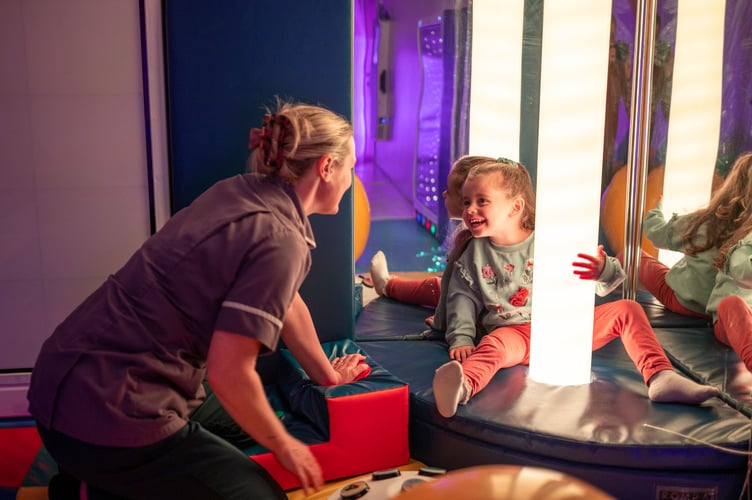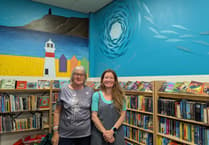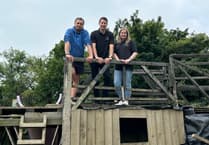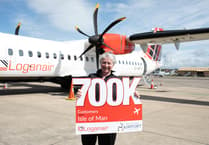The name Rebecca House might sound familiar. You may recognise its rainbow logo from various places around the island, but do you really know what it is or the services it offers?
Rebecca House Children’s Hospice has been open since 2007 and is the island’s only service for young people from birth up to the age of 18 with a palliative diagnosis, by that I mean those who have a long-term condition that can be treated but not cured.
The team at Rebecca House works with children with a broad range of life-limiting or life-threatening conditions, helping to improve their quality of life. They may not live until they are 70 or 80, but they might live to adulthood.
In some of these cases, Rebecca House can be involved right from birth to adulthood, when they are then discharged to adult services or other services better suited to their needs.
I’ve been speaking with Vicky Wilson, she’s the Head of Children, Young People, Inpatient Services and Therapies at Hospice Isle of Man, to find out more about the life-changing work they do.
‘There are a lot of misconceptions about a Children’s Hospice. Most people’s assumption is that it’s for children with cancer, but it’s quite rare that we have children with cancer on our caseload. The other belief is that the children on our caseload are going to die soon, and that’s not necessarily the case at all.
‘This belief can be a barrier to families embracing the support we offer as they initially don’t want to be involved with us. It’s a scary thing to be told by another health professional that they think you should be referred to a hospice.’
Vicky expands on this and tells me that because of the misconceptions and lack of understanding, one of the biggest challenges is sometimes just getting people through the door.
‘Generally, when people first come into contact with us they will say, “Oh, we just need a little bit of help. If you could just help us when they’re poorly.”
‘And then we build a relationship with them, and the more confident they become with us, the more trust they have in our nurses, and then they really start to benefit from our support and realise they always thought they were coping but didn’t realise how much they needed help.’
Rebecca House is about creating a positive environment where families find comfort, familiarity and a safe space to be open about how they are feeling and honest about what support they need with no judgement. Dealing with death and all that surrounds that is not the primary function of a children’s hospice.
‘I think the way we’ve delivered care has changed a lot over the years. Yes, we do work with children at the end of life and offer care after death, whether that be for those on our caseload or for any family on-island who have had a child die suddenly, but that is a small part of our role here.
‘The bulk of what we do is respite care to support families. Children who require our services often have complex needs that demand constant attention and care. These needs can range from life-threatening illnesses to chronic conditions that significantly impact their quality of life.
‘The constant worry, stress, and exhaustion can take a toll on families without them realising. Parents often feel that they are the only people who know how to take care of their children, or don’t want to admit that they are struggling. Our job, as experts in palliative care, is to take some of that burden and provide respite.’
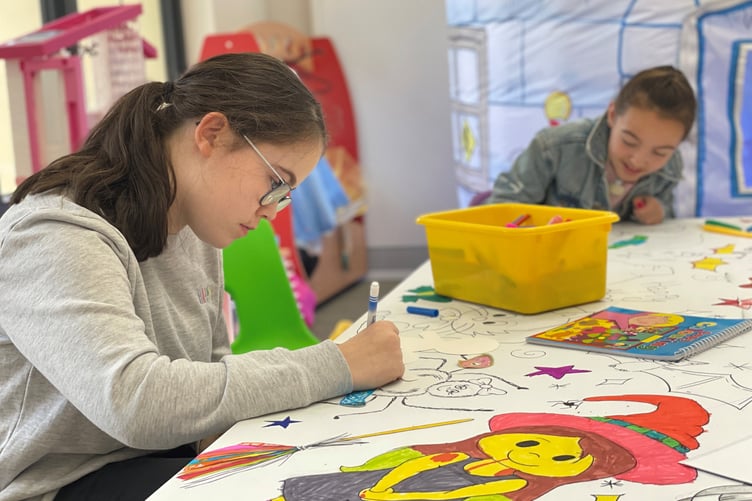
Rebecca House as a children’s hospice might not be unique to the Isle of Man but the level of service absolutely is. There are 50 children’s hospices across the whole of the UK and British Isles but none with the accessibility like Rebecca House due to our smaller population.
‘To have a children’s hospice of the calibre that we have is a truly remarkable thing for the island and not to be taken for granted. If you live in the UK, you could be a two-hour drive from your local children’s hospice, and they could be serving three different counties of the UK, so their caseloads are huge. Our current caseload is 44’
Before we had Rebecca House, families who had children who needed end of life care had to travel off-island for treatment and respite care. Something that no doubt would have added an incredible amount of added stress onto families. I asked Vicky what aspirations she has for the development of Rebecca House services.
‘I don’t have any outlandish aspirations; I think we’ve been so lucky to achieve a lot of things already, but I’d say the biggest challenge is sustainability of staffing. Recruiting children’s nurses is really challenging because we don’t train them in the Isle of Man.
‘I’d love to have more staff so we can offer more respite hours and more flexibility for the benefit of our families. But we’re already in a really positive situation. So, part of my management plan is maintaining that and keeping the service delivering high-quality care and supporting the families.’
After asking about the challenging aspects and aspirations Vicky has for Rebecca House, I thought I’d finish on asking about her favourite aspects of, what many might assume would be a very difficult, job.
‘I love my job, even though it can be challenging. End of life care for children is emotionally difficult, but we can create positive experiences. Families of children with a palliative diagnosis will have wondered on many occasions what the child’s death will be like and what will be the final cause.
‘We can’t change the fact that they’re going to die but we can help make it a good death. One time we supported a family whose little girl died at home. Her mum had worried for years about what her end of life would look like but after she died, she felt it was beautiful.
‘And you can’t get better than that really. So, if we can achieve that, for people, that’s hugely rewarding.’
